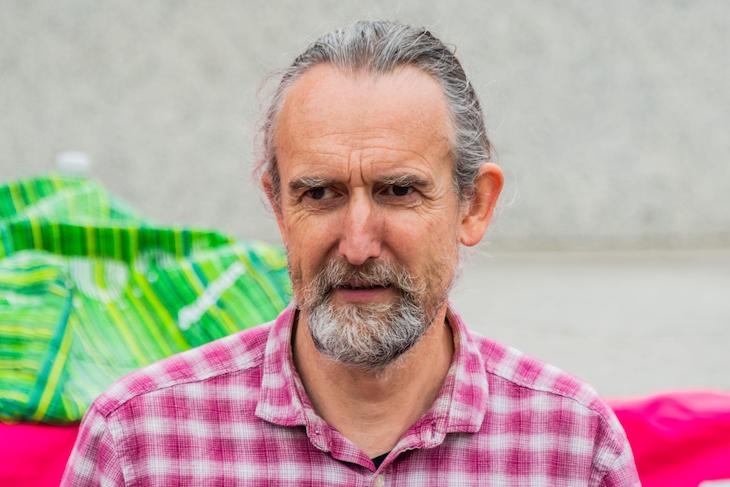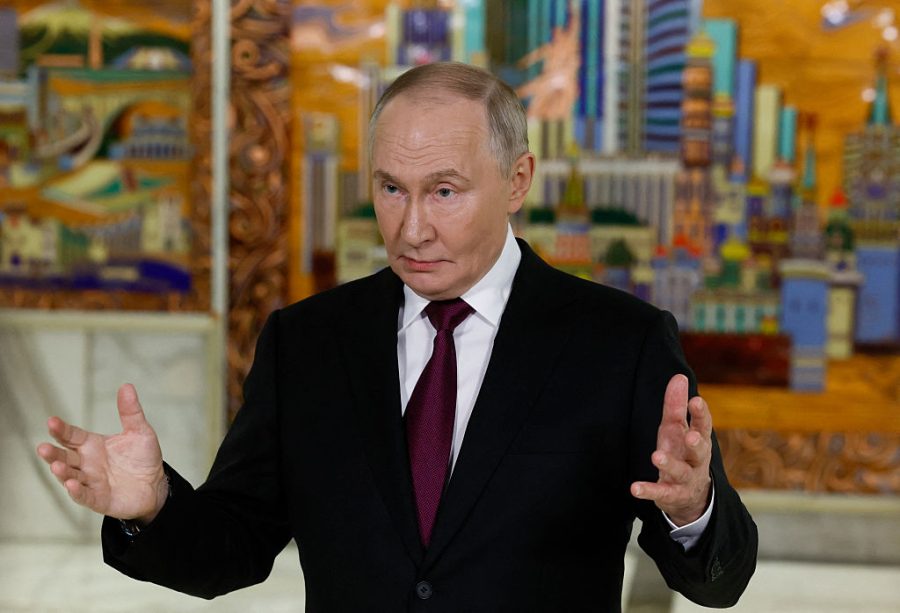The prison sentences passed on the Just Stop Oil protesters who immobilised the M25 – five years for Roger Hallam and four for the others – were certainly stiff. With prisons overflowing and some violent offenders receiving less harsh sentences, a small reduction in the jail terms might have been justified. But despite the backlash from environmentalists, justice has been served. Those who say that the protesters are merely conscientious practitioners of civil disobedience – and that the punishments imposed amount to a stamping on the right of peaceful protest – are wrong.
Roger Hallam’s casting of himself in the role of a civil disobedience advocate is both disingenuous and incorrect. Civil disobedience involves a willingness not only to disobey, but take the punishment: witness Mahatma Gandhi’s frequent and provocative demands to be sentenced to the maximum possible penalty after his acts defying British rule in India. Hallam, by contrast, is seeking the advantage of being a civil disobedience martyr coupled with the avoidance of any substantial penalty. He cannot have it both ways, and should not be allowed to do so.

References to peaceful protest, which JSO types like to mention, are a red herring. It’s true that no blood was shed. But there’s more to peaceful protest than refraining from punching people on the nose. The reason we say it ought to be allowed is the fact that it relies on persuasion rather than coercion.
That is not so here. In this case, coercion was used – and in spades. Admittedly the JSO activists did not exert it themselves; instead they climbed up motorway gantries in November 2022 with the quite deliberate aim of harnessing the power of the state, through the police, to stop drivers using the road for safety reasons. But by doing this, they were still seeking to foist their views forcibly and willy-nilly on large numbers of ordinary people, most of whom did not wish to be troubled with them. The fact that they got someone else to do the physical dirty work is beside the point.
And impose their point of view they did. The gridlock that resulted was intentional and spectacular: some 700,0000 vehicles were immobilised. Flights, funerals, exams and hospital cancer appointments were missed. This is not peaceful protest.
Equally specious was the suggestion that because Hallam had not climbed a gantry himself, but simply engaged in a Zoom call about co-ordinating the protest, his only crime – in his words – had been ‘giving a talk on civil disobedience as an effective, evidence-based method for stopping the elite from putting enough carbon in the atmosphere to send us to extinction.’ Er, no. That Zoom call was deliberately aimed at creating gridlock, as Hallam himself admitted. His excuse is no more convincing than a drug lord’s plea that by taking part in a phone call arranging a drop by someone else, he is doing nothing more than extolling the pleasures of recreational drugs.
It remains to be seen what will happen now. One thing is concerning: throughout this case there have been attempts not only to condone JSO’s actions but quietly to influence what should be an impartial judicial process.
Before the hearing, for instance, Michel Forst, a UN apparatchik and so-called ‘Special Rapporteur on environmental defenders’, made a highly questionable intervention calling on the government to ensure a light sentence for Daniel Shaw (who was jailed for four years this week). During the trial, there was a chorus of misguided criticism when the judge refused to allow the defendants to try to sway the verdict by addressing the court at length on their no doubt sincere, but legally irrelevant, views on climate change.
After the sentencing at Southwark Crown Court, the pressure remains. Dale Vince, one of the biggest Labour donors, has called for intervention ‘because it is an injustice to give four or five years to people who simply protest’; Chris Packham, meanwhile, not to be outdone, has alleged a ‘grotesque miscarriage of justice’ and demanded action by the Attorney-General.
For the moment, the Labour government has stood commendably firm; it has said it cannot intervene, and that it has no plans to change the legislation under which the JSO activists were convicted. But its line might well subtly soften later. It remains to be seen whether the Crown Prosecution Service will, in future, be as assiduous in pursuing protests of this kind.
We must hope the government holds its nerve, since a lot rides on this. JSO is no doubt sure of its cause, but its position is frightening. It claims, in effect, the right to immobilise the country and decide who is allowed to go where (for example, by its ‘blue light policy’ it arrogated itself the power to say that the police would be allowed to use the M25 but no-one else would). No state can allow such a corrosive policy: any private group that tries to say that citizens can only go about their lawful business with their say-so needs to be suppressed, and hard. A firm deterrent to such pretensions was necessary last week. It remains so today.







Comments